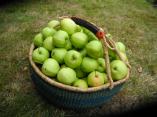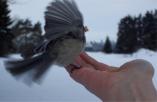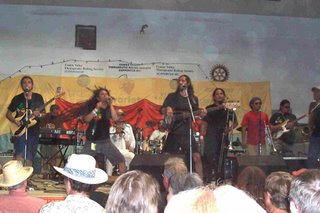A little awkward to post while being harassed by my desk ornament (yes, folks, Boris is back… he had the sneezes and needed another round of antibiotics so, well, umm…)
Been reading a new Billy Collins (The Trouble With Poetry and Other Poems, Picador 2006) and liked this bit, from Monday:
The proofreaders are playing the ping-pong
game of proofreading,
glancing back and forth from page to page,
the chefs are dicing celery and potatoes,
and the poets are at their windows
because it is their job for which
they are paid nothing every Friday afternoon.
And a little more from Ted Hughes:
Much has been said about the therapeutic value of uninhibited writing, and though no doubt that can go to the point where mere confusion enters, it is one way of talking about the pleasures and the healing effects of reading and writing poetry.
All imaginative writing is to some extent the voice of what is neglected or forbidden, hence its connection with the past in a nostalgic vein and the future in a revolutionary vein.
I had a revolutionary experience with a roast chicken on the weekend. Following the guidance of Lynne Rossetto Kasper, I rubbed a whole chicken with olive oil and then slathered on a paste of 1 tbsp minced rosemary, 1 large minced garlic and 1/4 tsp salt, stuffed a couple of sprigs of whole rosemary in the cavity, covered it in plastic and refrigerated it for 24 hours, and then roasted it at 350f at 20-25 mins/pound, the first half on its breast and the second half breast side up, basting it with cooking juices at intervals until the thickest part of the thigh read 170f on the thermometer. It was gorgeous. The finish was to drizzle it with a 3-4 tbsp artisan balsamic vinegar (or slice it first and and drizzle with balsamic). It was beautifully moist and well flavoured.
While I told Jennifer about this triumph, she reminded me that only a few weeks ago I had been reading to her about the use of salt on meats. A magazine I’m extremely fond of is Cooks Illustrated, which is a food nerd’s dream, featuring experiments from America’s Test Kitchen (something I’d never heard of before I started reading the magazine). In the August issue they were performing merciless experiments on barbecued chicken and explained (with diagrams) the effects of salting chicken for 3 or 6 hours. At 3 hours the flesh does not absorb the salt and you end up with dry chicken (which is why popular wisdom says not to salt roasting meats). But after 6 hours, the salt is drawn into the flesh and you end up with flavour from the salt and from any other water-soluble flavouring agents (e.g. herbs and spices but not oil-solubles like capsaicin, the hot element of chili peppers). They prefer salting to brining if you are dealing with chicken because they found brining made the skin soggy, and salting leaves it crispier.














